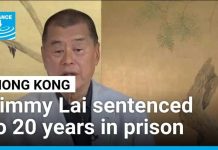
A federal judge has slammed the Trump administration for failing to explain their efforts to return a Maryland man mistakenly deported to El Salvador, where he now sits in prison despite a court order that should have prevented his removal.
Key Takeaways
- U.S. District Judge Paula Xinis ordered daily updates from the government on plans to bring Kilmar Abrego Garcia back from El Salvador after his wrongful deportation.
- The Trump administration has admitted the deportation was a mistake but argued in court it does not have a duty to rectify the situation.
- Abrego Garcia had an immigration court order preventing his deportation due to fears of persecution from local gangs, but was deported anyway.
- The Supreme Court has ordered the administration to facilitate Abrego Garcia’s return, challenging the government’s stance on its responsibilities in deportation cases.
- The case highlights tensions between strict immigration enforcement and legal protections for those facing deportation.
Government Claims No Duty to Return Wrongfully Deported Man
The Trump administration has taken a controversial legal position by arguing it has no obligation to help return a Maryland resident who was wrongfully deported to El Salvador. Kilmar Abrego Garcia had a court order preventing his deportation due to fears of persecution from local gangs, but immigration officials removed him from the country anyway. Now imprisoned in El Salvador, Abrego Garcia’s case has drawn sharp criticism from a federal judge who demanded accountability for what appears to be a clear violation of judicial authority.
U.S. District Judge Paula Xinis has ordered the government to provide daily updates on efforts to bring Abrego Garcia back, expressing frustration with the administration’s lack of information. During a heated court exchange, the judge pointedly asked government attorney Drew Ensign, “I’m not asking for state secrets. He’s not here. The government was prohibited from sending him to El Salvador. And now I’m asking just a very simple question. Where is he?”
HOLY MOLY! Stephen Miller just gave a brutal fact-check to the media on Kilmar Abrego Garcia, the illegal alien the Supreme Court ordered to return. pic.twitter.com/eQXu7ZTSd2
— George (@BehizyTweets) April 14, 2025
Supreme Court Orders Administration to Act
The case has escalated to the Supreme Court, which sided with Abrego Garcia and ordered the administration to facilitate his return. This ruling directly challenges the government’s position that it lacks responsibility for rectifying its mistake. The highest court’s involvement underscores the significance of this case for setting precedents about the limits of executive power in immigration matters and the judiciary’s authority to correct government errors.
Despite this court-ordered obligation, administration officials have continued to resist, claiming that the timelines set by the court are “impracticable.” The State Department has confirmed that Abrego Garcia is “alive and secure” in an El Salvadoran prison, but details about efforts to return him remain scarce. This standoff between the judiciary and executive branch highlights fundamental questions about governmental accountability when mistakes result in severe personal consequences.
Disputed Gang Affiliation Claims
The Trump administration initially justified the deportation by claiming Abrego Garcia was a member of the notorious MS-13 gang. However, his attorneys have forcefully disputed this characterization, stating there is no evidence to support such allegations. This dispute highlights concerns about the factual basis for deportation decisions and raises questions about due process protections for immigrants who may be incorrectly classified as security threats.
The administration continues to emphasize the traditional deference given to the executive branch in foreign affairs matters, suggesting that judicial orders regarding deportation may infringe on presidential authority. This perspective aligns with the administration’s broader approach to immigration enforcement, which prioritizes executive discretion and national security concerns. For supporters of stricter immigration policies, this case represents an important test of presidential authority to manage border security without excessive judicial interference.
Implications for Immigration Policy
This case arrives amid a series of controversial immigration policy changes, including the revocation of Temporary Protected Status for approximately 9,000 Afghans and court battles over enforcement actions in houses of worship. The administration’s stance in the Abrego Garcia case signals a firm commitment to asserting executive authority in immigration matters, even when facing direct judicial challenges. For conservative voters concerned about border security, this approach demonstrates resolve in enforcing immigration laws.
As this legal battle continues, it will likely establish important precedents regarding the obligations of the federal government when its immigration enforcement actions violate court orders or result in mistaken deportations. The case highlights the tension between administrative efficiency in immigration enforcement and the constitutional requirement to follow judicial directives, a balance that will shape deportation practices for years to come.
Sources:
The Latest: Trump administration offers no details on mistakenly deported man after court ruling
Trump administration offers no details on mistakenly deported man after court ruling
Trump administration to facilitate return of mistakenly deported man



